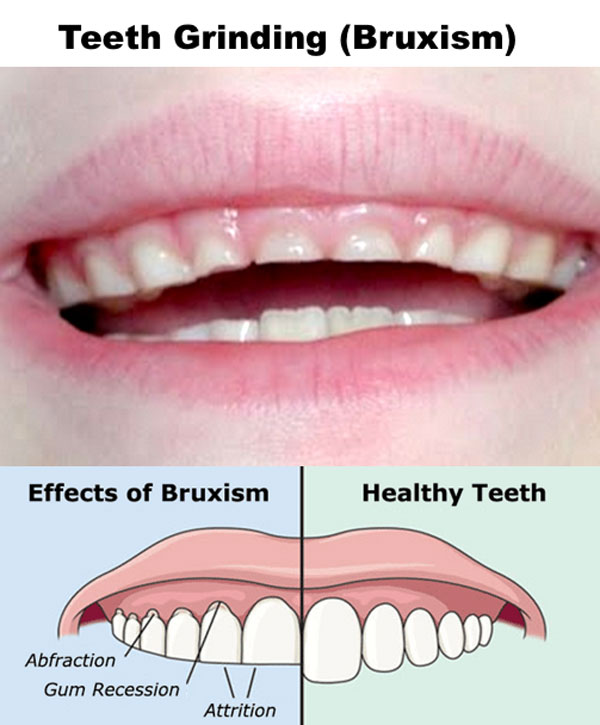 PowerSMILE Your Way Away From The Grind
PowerSMILE Your Way Away From The Grind
Do you ever wake up in the morning with sore teeth or a painful jawbone? Or perhaps your sleeping partner often complains of grinding noises while you sleep? You might be suffering from grinding your teeth in sleep, a problem that could cause serious long-term problems to your overall oral health, not to mention the lifespan of your teeth themselves.
Grinding teeth, a condition formally known as bruxism, affects as many as one in three people in the general population in all of its various forms, ranging from different levels of severity to daytime teeth grinding (“awake bruxism”) and nighttime teeth grinding (“sleep bruxism”). Sleep bruxism occurs unconsciously; more grinding (as opposed to a higher proportional prevalence of clenching) is involved, and also sleep bruxism is thought to be less associated with mental and psychological stress than is awake bruxism, meaning there are less preventative methods than mouth guards than there are for awake bruxism.
Teeth grinding is damaging to your teeth, as it weakens the enamel over time and often causes chips in your teeth. It also puts a lot of stress on your jawbone, which is particularly concerning because your jawbone is connected to the rest of your skull and your whole body; additional stress on your jawbone and your jaw joints usually increases neck pain, shoulder pain and muscle pain in your face.
What are the causes of teeth grinding?
The causes for teeth grinding are wide-ranging from person to person. Research suggests there is a correlation between teeth grinding and certain lifestyle habits, such as cigarette smoking, regular alcohol consumption and regular caffeine consumption; high stress and anxiety levels also often correlate with teeth grinding.
More natural causes of teeth grinding often involve your body unconsciously reacting to artificial alignments of the teeth in your jaw bones (a common result of orthodontic treatment) or sometimes when your body is reacting to naturally imperfect teeth-to-jaw alignments.
What are teeth-grinding symptoms?
The most common symptom of teeth grinding in your sleep is a headache or migraine you’ll likely experience in the morning after waking up, which is caused by the subsequent stress put on your jawbone. Other symptoms include muscle pain in your face, neck, and shoulders as well as adverse effects on your teeth, causing flat teeth and chipped teeth over time for many patients.
How to stop teeth grinding at night
PowerSMILE Dental Center can fit you a custom-sized mouth guard for teeth grinding that you can wear while sleeping. We will assess the problem and diagnose if you are likely suffering from sleep bruxism, make recommendations for wearing night guards for teeth grinding and instructions for cleaning and wearing your night guard. The custom fit for your teeth means you will continue to sleep comfortably while also optimizing the protection level against the teeth grinding.

 PowerSMILE Your Way Away From The Grind
PowerSMILE Your Way Away From The Grind